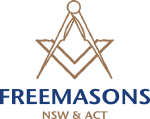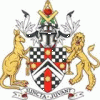
Membership Principles
Whilst the exact nature of Freemasonry may be unknown to you it is important that you satisfy the following basic requirements for membership:
a) Your decision to join is made without inducement by others, nor for personal gain or reasons of idle curiosity
b) You believe in a Supreme Being
c) You are a law-abiding person
The Vision Statement of the United Grand Lodge of New South Wales and the Australian Capital Territory is:
“To see Freemasonry recognised as an organisation of high moral and social standards
that benefits its members and the community”
What is Freemasonry?
Freemasonry offers its members an approach to life that seeks to reinforce thoughtfulness for others, kindness in the community, honesty in business, courtesy in society and fairness in all things. Members are urged to regard the interests of the family as paramount but importantly Freemasonry also teaches and practises concern for people, care for the less fortunate, and help for those in need.
Why do people join and remain members?
People became Freemasons for a variety of reasons, some as the result of family tradition, others upon the introduction of a friend or out of a curiosity to know what it is all about.
Those who become active members and who grow in Freemasonry do so principally because they enjoy it. They enjoy the challenges and fellowship that Freemasonry offers. There is more to it, however, than just enjoyment.
Participation in the dramatic presentation of moral lessons and in the working of a lodge provides a member with a unique opportunity to learn more about himself and encourages him to live in such a way that he will always be in search of becoming a better man, not better than someone else but better than he himself would otherwise be and therefore an exemplary member of society.
Each Freemason is required to learn and show humility through initiation. Then, by progression through a series of degrees he gains insight into increasingly complex moral and philosophical concepts, and accepts a variety of challenges and responsibilities that are both stimulating and rewarding. The structure and working of the lodge, and the sequence of ceremonial events, which are usually followed by social gatherings, offer members a framework for companionship, teamwork, character development and enjoyment of shared experiences.
What Promises do Freemasons take?
New members make solemn promises concerning their conduct in the Lodge and in society. These promises are similar to those taken in court or upon entering the armed services or many other organisations. Each member also promises to keep confidential the traditional methods of proving he is a Freemason, which he would use when visiting a lodge where he is not known.
Members also undertake not to make use of their membership for personal gain or advancement. Failure to observe this principle, or otherwise to fall below the standards expected of a Freemason, can lead to expulsion.
Who can join?
Membership is open to men of all faiths who are law-abiding, of good character and who acknowledge a belief in God. Freemasonry is a multi-racial and multi-cultural organisation. It has attracted men of goodwill from all sectors of the community into membership. There are similar Masonic organisations for women.
Is Freemasonry a religion?
Freemasonry is not a religion. It has no theology and does not teach any route to salvation. A belief in God (The Great Architect of the Universe), however, is an essential requirement for membership and Freemasonry encourages its members to be active in their own religions as well as in society at large.
Freemasonry embraces all men who believe in God. Its membership includes Christians, Jews, Hindus, Sikhs, Muslims, Parsees and others. The use of descriptions such as the Great Architect prevents disharmony. The Great Architect is not a specific Masonic god or an attempt to combine all gods into one. Thus, men of differing religions pray together without offence being given to any of them.
Although every lodge meeting is opened and closed with a prayer and its ceremonies reflect the essential truths and moral teachings common to many of the world's great religions, no discussion of religion is permitted in lodge meetings.
Every Lodge is opened on the Volume of the Sacred Law. To the majority of Freemasons the Volume of the Sacred Law is the Bible. There are many in Freemasonry, however, whoconsider another Book as the Book of their faith,and they will make their promises on the book that is regarded as sacred to their religion. The Bible that contains the Old and the New Testamentswill always be present in ourLodges but as the organisation welcomes men of many different faiths, it is called the Volume of the Sacred Law.
How much does it cost to be a Freemason?
It varies from lodge to lodge but anyone wishing to join can find a lodge to suit his pocket. On entry, there is an initiation fee and regalia to buy. Regalia is historical and symbolic and, like a uniform, serves to indicate to members where they rank in the organisation. A member pays an annual subscription to his lodge that covers his membership and the administrative cost of running the lodge. It is usual to have a meal after the meeting; the cost of this can be included either in the annual subscription or paid for at the time.
It is entirely up to the individual member what he gives to Charity, but it should always be without detriment to his other responsibilities. Similarly, he may join as many lodges as his time and pocket can allow as long as it does not adversely affect his family life and responsibilities.
Is Freemasonry a secret society?
Freemasonry is not a secret society, but lodge meetings, like meetings of many other social and professional associations, are private occasions open only to members.
Freemasons are encouraged to speak openly about their membership, while remembering that they undertake not to use it for their own or anyone else's advancement.
The meeting places and halls used by Freemasons are readily identifiable, are listed in telephone directories and in many areas are used by the local community for activities other than Freemasonry.
The rituals and ceremonies used by Freemasons to pass on the principles of Freemasonry to new members were first revealed publicly in 1723. They include the traditional forms of recognition used by Freemasons essentially to prove their identity and qualifications when entering a Masonic meeting.
Many thousands of books have been written on the subject of Freemasonry and are readily available to the general public. Freemasonry offers spokesmen and briefings for the media and provides talks to interested groups on request. Freemasons are proud of their heritage and happy to share it.
Is Freemasonry involved in politics?
Freemasonry is definitely not a political organisation, it has no political agenda, and discussion of politics is not permitted at lodge meetings.
Freemasonry naturally tends to attract those with a concern for people and a sense of social responsibility and purpose. There are members, therefore, who are involved in politics at local, national and international level. Equally there are members who take an active interest in non-Masonic charitable organisations and other community groups.
Is Freemasonry involved in the community?
From its earliest days, Freemasonry has been involved in charitable activities, and since its inception it has provided support for many widows and orphans of Freemasons as well as others within the local communities.
All monies raised for charity are drawn from amongst Freemasons, their families and friends, while grants and donations are made to Masonic and non-Masonic charities alike.
Freemasonry has an enviable record of providing regular and consistent financial support to individual charities over long periods while at the same time making thousands of grants to local charities, appeals and projects throughout NSW & ACT each year.
A Mason believes
- in the great worth of the individual.
- in the Brotherhood of Man under the Fatherhood of God.
- in a Brotherhood not based on wealth, position or power, but based upon Brotherly Love, Relief and Truth.
· in Charity (“Relief” is often interpreted as Charity).
· that Charity has a much wider context than that of giving alms.
· in Love of Country.
· in a just and righteous Deity, be He known as Brahma, Allah, Jehovah, Jesus, or God.
- that a man becomes a Freemason through his own volition.
- in being profoundly fraternal.
- in Truth and in the constant search for it.
For further information and details of how to join, telephone or write to:
The Grand Secretary
The United Grand Lodge of NSW & the ACT
P O Box A259, Sydney South, NSW 1235
Tel : 02 9284 2800
www.uglnsw.freemasonry.org.au




